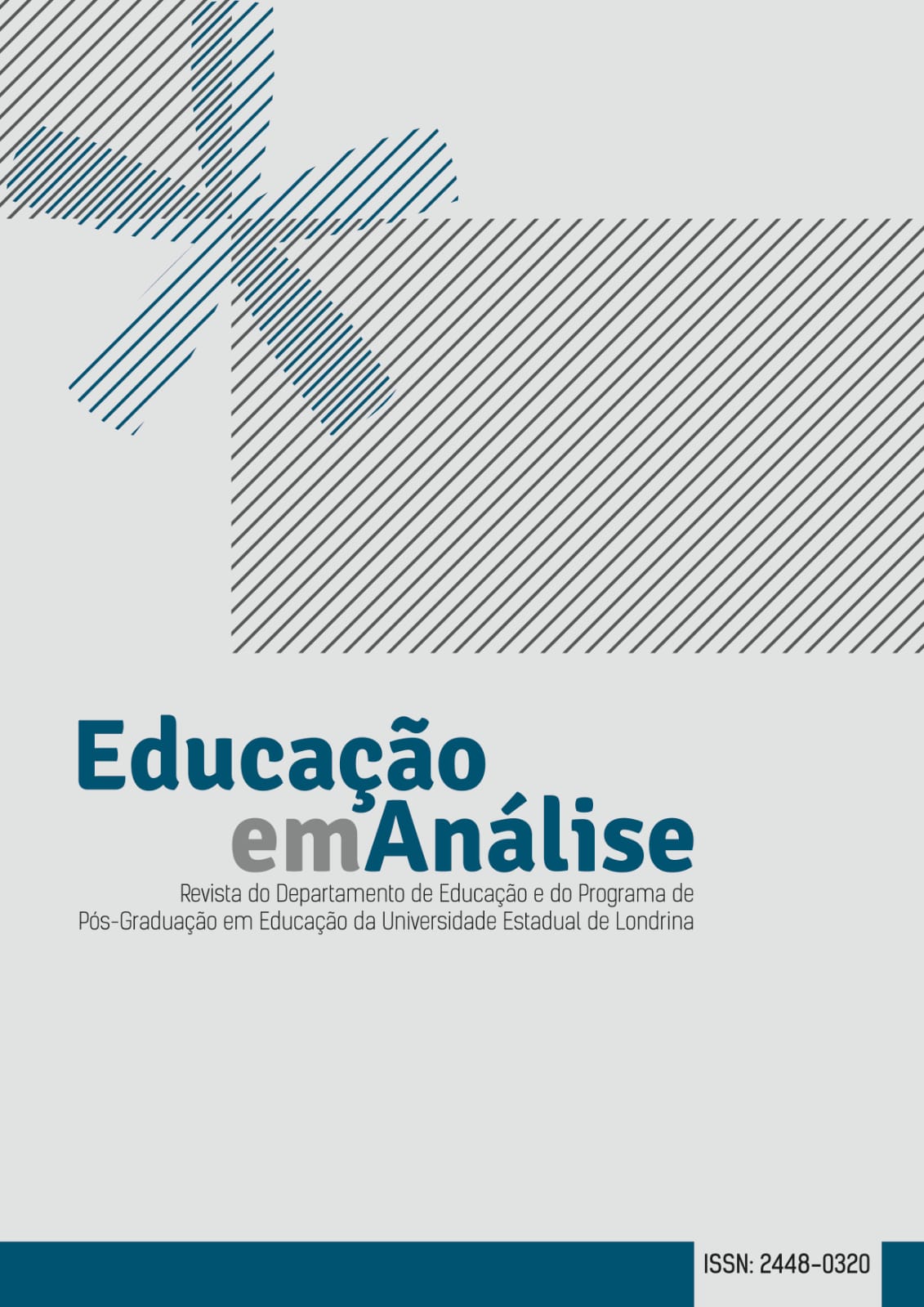Ideology, prejudice and the development of autonomy: interfaces between the sociological propositions of Kamii and Piaget
DOI:
https://doi.org/10.5433/1984-7939.2022v7n2p322Keywords:
Development, Moral, Autonomy, Ideology, PrejudiceAbstract
The development of intellectual and moral autonomy is revealed as the central purpose of education. The significant scientific production in the field of Genetic Epistemology collaborates with this goal. In this theoretical essay, Constance Kamii's propositions for an Education aimed at the development of autonomy and its educational obstacles are correlated with Jean Piaget's sociological studies that contrast the seminormative intergenerational ideological coactions with the development of scientific thought. Taking our recent research in this same field as a basis, we suggest that prejudices relate to the conservative ideological coercions of intellectual and moral heteronomy, showing themselves as obstacles to the scientific and moral development of society.
Downloads
References
DELVAL, Juan. Introdução à prática do método clínico: descobrindo o pensamento das crianças. Porto Alegre: Artmed, 2002.
DUCKITT, JOHN H. The social psychology of prejudice. New York: Praeger, 2019. DOI: https://doi.org/10.1007/978-3-319-28099-8_166-1
FONZAR, Jair. Piaget: do egocentrismo (História de um conceito). Educar em Revista, Curitiba, n. 5, p. 81-103, 1986. Disponível em: https://doi.org/10.1590/0104-4060.059. Acesso em: 18 jun. 2021. DOI: https://doi.org/10.1590/0104-4060.059
GONÇALVES, Carlos Eduardo de Souza. Preconceito de classe social nas significações de estudantes de ensino técnico: um estudo embasado no aporte teórico da Epistemologia Genética. 2022. 410 f. Tese (Doutorado em Educação) – Universidade Estadual de Londrina, Londrina, 2022. Disponível em: http://www.bibliotecadigital.uel.br/document/?code=vtls000236162. Acesso em: 21 fev. 2023.
GONÇALVES, Carlos Eduardo de Souza; OLIVEIRA, Francismara Neves de. Dimensões intelectual e afetiva do juízo moral de estudantes sobre manifestações de preconceito. Schème: Revista Eletrônica de Psicologia e Epistemologia Genéticas, Marília, v. 11, n. 2, p. 80-107, 2019. Disponível em: https://revistas.marilia.unesp.br/index.php/scheme/article/view/9745. Acesso em: 21 fev. 2023. DOI: https://doi.org/10.36311/1984-1655.2019.v11n2.04.p80
IDEOLOGIA. In: ABBAGNANO, Nicola. Dicionário de filosofia. São Paulo: Martins Fontes, 1998.
KAMII, Constance. La autonomía como objetivo de la educación: implicaciones de la teoría de Piaget. Infancia y Aprendizaje, Madrid, v. 5, n. 18, p. 3-32, 1982. DOI: https://doi.org/10.1080/02103702.1982.10821934
KUHN, Thomas Samuel. A estrutura das revoluções científicas. 5. ed. São Paulo: Perspectiva, 1998.
PIAGET, Jean William Fritz. Pensée égocentrique et pensée sociocentrique. Cahiers Internationaux de Sociologie, Paris, n. 10, p. 34-49, 1951.
PIAGET, Jean William Fritz. Estudos sociológicos. Tradução de Reginaldo Di Piero. Rio de Janeiro: Forense, 1973a.
PIAGET, Jean William Fritz. A equilibração das estruturas cognitivas: problema central do desenvolvimento. Tradução de Marion Merlone dos Santos Penna. Rio de Janeiro: Zahar, 1976.
PIAGET, Jean William Fritz. Juízo moral na criança. São Paulo: Summus, 1994.
PIAGET, Jean William Fritz. Relações entre a afetividade e a inteligência no desenvolvimento mental da criança. Tradução de Cláudio J. P. Saltini e Doralice B. Cavenaghi. Rio de Janeiro: Wak, 2014.
PIAGET, Jean William Fritz. To understand is to invent. Nueva York: The Viking Press, 1973b.
PIAGET, Jean William Fritz; GARCIA, Rolando. Hacia uma logica de significaciones. 2. ed. Tradução de Emilia Ferreiro. Barcelona: Ed. Gedisa, 1997.
PIAGET, Jean William Fritz; GARCIA, Rolando. Hacia uma logica de significaciones. Trad. Emilia Ferreiro. Barcelona: Ed. Gedisa, 1987
PIAGET, Jean William Fritz; WEIL, Anne Marie. The development in children of the idea of the homeland and of relations to other countries. International Social Science Journal, Paris, v. 3, p. 561-578, 1951.
WELLS, Harry Kohlsaat. O fracasso da psicanálise: de Freud a Fromm. Rio de Janeiro: Paz e Terra, 1970.
Downloads
Published
How to Cite
Issue
Section
License
Copyright (c) 2023 Carlos Eduardo de Souza Gonçalves, Francismara Neves de Oliveira

This work is licensed under a Creative Commons Attribution-NonCommercial 4.0 International License.
Os artigos publicados na Revista Educação em Análise estão sob a Licença Creative Commons Atribuição 4.0 Internacional, garantindo Acesso Aberto. Deste modo, os autores mantêm os direitos autorais de seus trabalhos e, em caso de republicação, solicita-se que indiquem a primeira publicação nesta revista. Essa licença permite que qualquer pessoa leia, baixe, copie e compartilhe o conteúdo, desde que a devida citação seja feita. Além disso, autoriza a redistribuição, adaptação e criação de obras derivadas em qualquer formato ou meio, incluindo uso comercial, desde que a atribuição à revista seja mantida.
A revista se reserva o direito de efetuar, nos originais, alterações de ordem normativa, ortográfica e gramatical, com vistas a manter o padrão culto da língua e a credibilidade do veículo. Respeitará, no entanto, o estilo de escrever dos autores. Alterações, correções ou sugestões de ordem conceitual serão encaminhadas aos autores, quando necessário.
As opiniões emitidas pelos autores dos artigos são de sua exclusiva responsabilidade.












